
M.A. in IR | Historian&ex-consultant | Model | American & European history&etc | Shipper of Napoleon/Aleksandr | Currently making a book out of #Voicesfrom1812
3 subscribers
How to get URL link on X (Twitter) App




 At first, he is baffled by the "immensity" of Russia compared to the narrowly clustered towns in his home country. Kolbe swears having travelled 200 miles without finding a single trace of human settlement before reaching Mitau, his first destination.
At first, he is baffled by the "immensity" of Russia compared to the narrowly clustered towns in his home country. Kolbe swears having travelled 200 miles without finding a single trace of human settlement before reaching Mitau, his first destination. 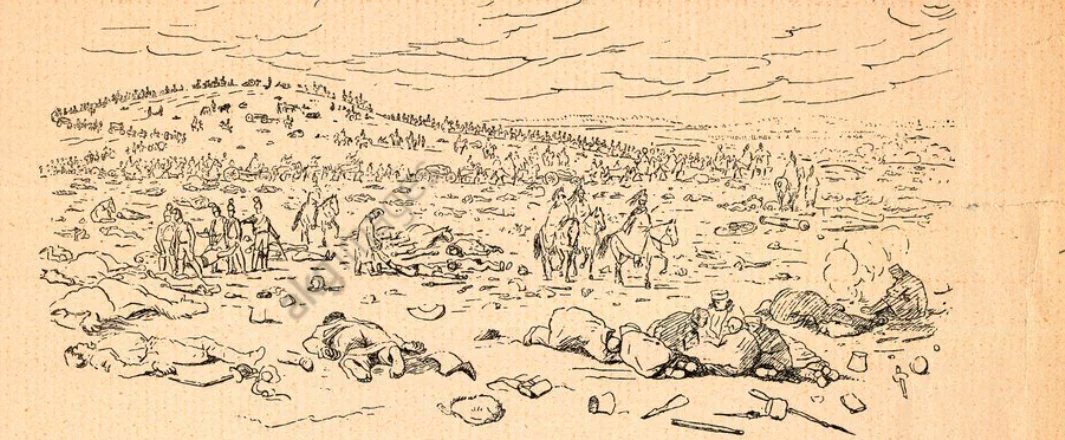
 1. Napoleon has no doubts that Kutuzov offered him the battle he has long desired, and that it is his soldiers who stood their ground until the last minute. But having "yield[ed] neither prisoners nor trophies," the victory looks ominously fruitless-yet again!
1. Napoleon has no doubts that Kutuzov offered him the battle he has long desired, and that it is his soldiers who stood their ground until the last minute. But having "yield[ed] neither prisoners nor trophies," the victory looks ominously fruitless-yet again!

 As Innes succeeded Fry as the new commander-in-chief, Washington and other officers were promoted along with him. Seizing this opportunity, Washington recommended William Peyrouney, who had served as Ensign in the regiment for twelve years, as the new adjutant,
As Innes succeeded Fry as the new commander-in-chief, Washington and other officers were promoted along with him. Seizing this opportunity, Washington recommended William Peyrouney, who had served as Ensign in the regiment for twelve years, as the new adjutant, 

 Franklin first broached the idea in 1751, amidst the escalating Anglo-French dispute over the Forks of the Ohio River or, La Belle Riviere. The neglect of those fertile tracts of land in the Treaty of Aix-la-Chapelle (1748) had only rekindled the decades-old animosity.
Franklin first broached the idea in 1751, amidst the escalating Anglo-French dispute over the Forks of the Ohio River or, La Belle Riviere. The neglect of those fertile tracts of land in the Treaty of Aix-la-Chapelle (1748) had only rekindled the decades-old animosity.
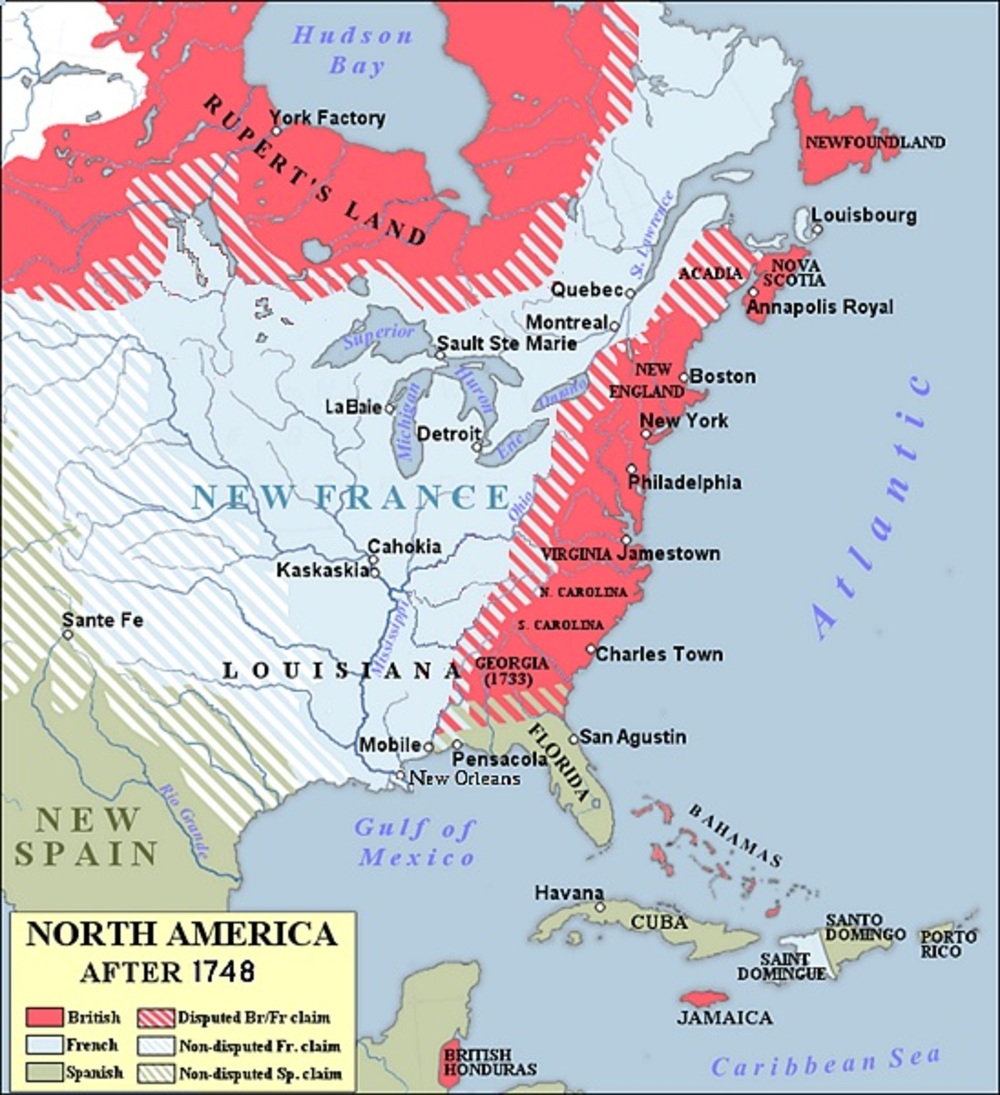
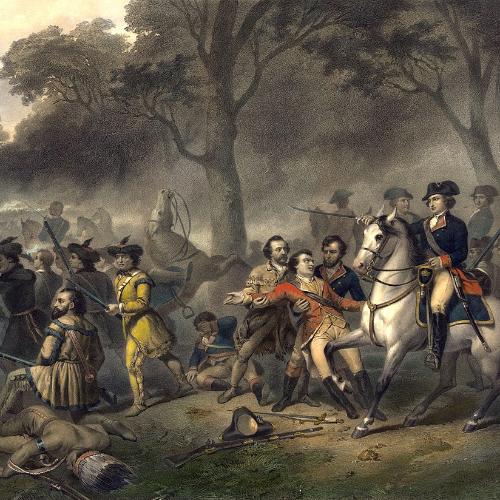
 At 10 p.m. on the 27th, Washington set out from his camp in the Great Meadows, Pennsylvania with a party of about 40 Virginia militiamen. They had no idea where they were headed for, and what catastrophic liability their would come to bear.
At 10 p.m. on the 27th, Washington set out from his camp in the Great Meadows, Pennsylvania with a party of about 40 Virginia militiamen. They had no idea where they were headed for, and what catastrophic liability their would come to bear.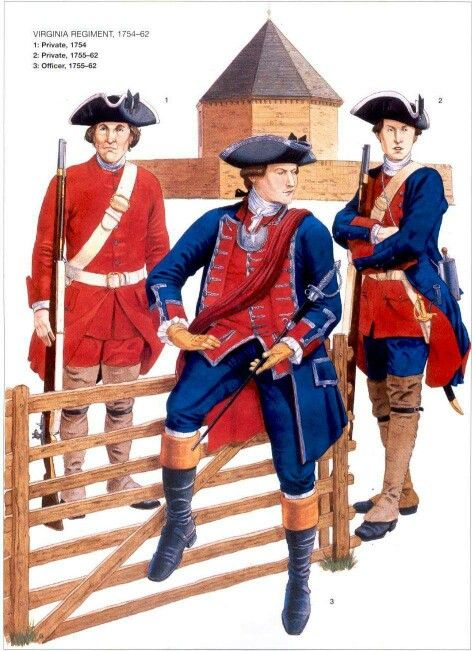

 Yesterday, "a small light partys of Horse (wagon Horses)to reconnoitre the Enemy, and discover [the enemy's] strength and motion" had returned "without seeing anything."
Yesterday, "a small light partys of Horse (wagon Horses)to reconnoitre the Enemy, and discover [the enemy's] strength and motion" had returned "without seeing anything." 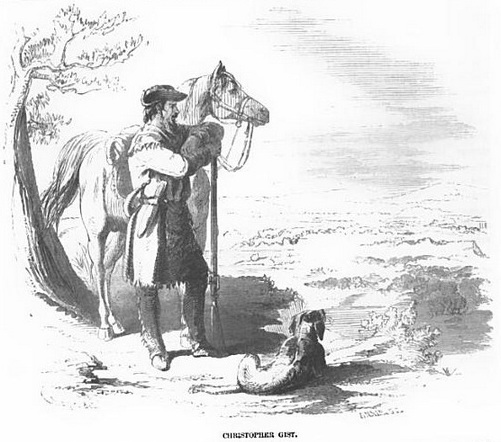


 Three days ago, Tanaghrisson or the Half-King, whose childhood spent in French captivity sustained his aversion to the French expansion into the Forks of the Ohio, had offered to guide Washington and his 'English brethren' to the French encampment in the Great Meadows.
Three days ago, Tanaghrisson or the Half-King, whose childhood spent in French captivity sustained his aversion to the French expansion into the Forks of the Ohio, had offered to guide Washington and his 'English brethren' to the French encampment in the Great Meadows. 

 Between one and two o'clock in the morning, Napoleon prepared to transfer the bulk of his army to Lützen via Merseburg. By five, the Divisions Durutte and Bonet would leave Weißenfels for Eugene's headquarter in Merseburg, where the former would join Eugene and the latter
Between one and two o'clock in the morning, Napoleon prepared to transfer the bulk of his army to Lützen via Merseburg. By five, the Divisions Durutte and Bonet would leave Weißenfels for Eugene's headquarter in Merseburg, where the former would join Eugene and the latter 


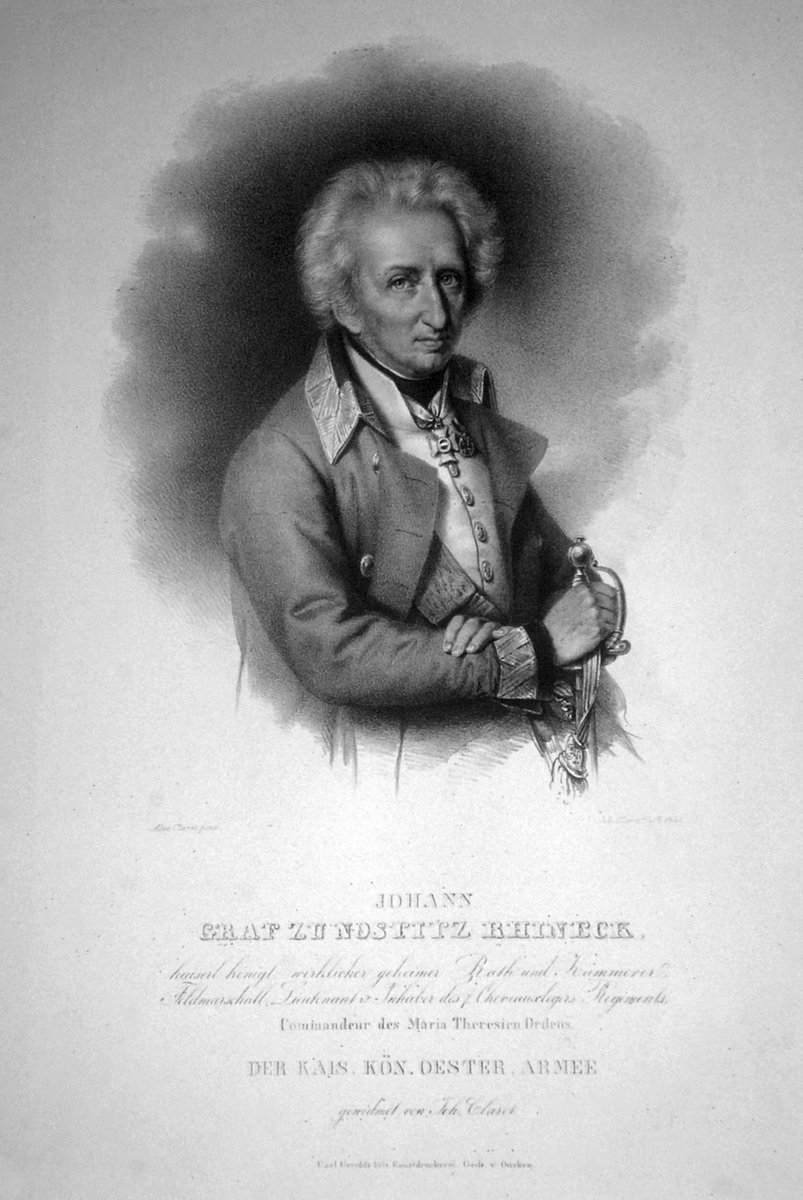 Langenau, arriving from Dresden, was the first to inform Poniatowski that the new relations between Austria and Russia has become irreversible, and that he must comply with the procedure of evacuation stipulated by the convention terminating the armistice.
Langenau, arriving from Dresden, was the first to inform Poniatowski that the new relations between Austria and Russia has become irreversible, and that he must comply with the procedure of evacuation stipulated by the convention terminating the armistice.
 Around midnight in Köthen, Bülow received the fifth dispatch from Yorck in Skeuditz, that Merseburg had already fallen to Macdonald. At dawn, the same dispatch reached Kleist in Halle. On the previous day, both of them had planned for an expedition to Merseburg;
Around midnight in Köthen, Bülow received the fifth dispatch from Yorck in Skeuditz, that Merseburg had already fallen to Macdonald. At dawn, the same dispatch reached Kleist in Halle. On the previous day, both of them had planned for an expedition to Merseburg;

 In the morning, Senfft returned to Frederick Augustus in Prague. In contrast to the resurgence of suspicion towards him among the Allies in Dresden, the citizens greeted him with "the greatest solemnity and a lively eagerness."
In the morning, Senfft returned to Frederick Augustus in Prague. In contrast to the resurgence of suspicion towards him among the Allies in Dresden, the citizens greeted him with "the greatest solemnity and a lively eagerness."
 At Wittgenstein's order, Yorck, Bülow, and Kleist consolidated their forces around Halle, where cannonade had raged on from noon to 4 p.m. on the previous day. Yorck moved from Landsberg to Schkeuditz, about 15 miles southeast of Halle,
At Wittgenstein's order, Yorck, Bülow, and Kleist consolidated their forces around Halle, where cannonade had raged on from noon to 4 p.m. on the previous day. Yorck moved from Landsberg to Schkeuditz, about 15 miles southeast of Halle,

 "I think that [their] first goal will be to arrive at Leipzig," he wrote to Ney, headquartered in Naumburg, at 3 a.m. The hypothesis was based on two events: the surrender of Thorn, "reduced to 900 Bavarians by illness," and Sacken's march on Cracow.
"I think that [their] first goal will be to arrive at Leipzig," he wrote to Ney, headquartered in Naumburg, at 3 a.m. The hypothesis was based on two events: the surrender of Thorn, "reduced to 900 Bavarians by illness," and Sacken's march on Cracow.

 The permanent friction between Alexander and Kutuzov, dating back to the ill-fated descent from the Pratzen Heights in 1805, waned on his final days. He was still adamantly opposed to Wittgenstein and Blucher's plan for an offensive, but no longer had any energy left to quarrel.
The permanent friction between Alexander and Kutuzov, dating back to the ill-fated descent from the Pratzen Heights in 1805, waned on his final days. He was still adamantly opposed to Wittgenstein and Blucher's plan for an offensive, but no longer had any energy left to quarrel.

 A day ago, Bülow received a confounding dispatch from Wittgenstein. Dated the 26th, it obliged him to operate independently between the Roßlau, the Upper Elbe, and the Lower Saale to "watch the movements of the Viceroy and simultaneously cover the siege of Wittenberg."
A day ago, Bülow received a confounding dispatch from Wittgenstein. Dated the 26th, it obliged him to operate independently between the Roßlau, the Upper Elbe, and the Lower Saale to "watch the movements of the Viceroy and simultaneously cover the siege of Wittenberg."

 Early in the morning, Sahr entered the headquarter of Thielmann and wished him a happy birthday. But he did not stop there, and frankly advised him "that he should not use today 's festival to influence the officers in a way that does not agree with the king 's orders."
Early in the morning, Sahr entered the headquarter of Thielmann and wished him a happy birthday. But he did not stop there, and frankly advised him "that he should not use today 's festival to influence the officers in a way that does not agree with the king 's orders."
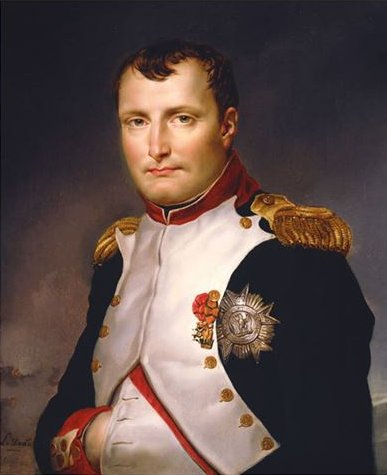

 An order of the day was issued to Berthier, Ney, Jerome, and Eugene.
An order of the day was issued to Berthier, Ney, Jerome, and Eugene. 
 "The speed at which we journeyed was inconceivable," wrote Caulaincourt, "...There, as everywhere, the presence of the Emperor operated like a talisman in tranquillizing the public mind. During the whole of our journey through this conquered country,
"The speed at which we journeyed was inconceivable," wrote Caulaincourt, "...There, as everywhere, the presence of the Emperor operated like a talisman in tranquillizing the public mind. During the whole of our journey through this conquered country,

 At 8 a.m., on the day after "an event most propitious," Stewart and Jackson entered the Saxon capital. After finding their quarters at Hôtel de Pologne, the former went to find the two sovereigns while the latter "went almost directly to Lord Cathcart."
At 8 a.m., on the day after "an event most propitious," Stewart and Jackson entered the Saxon capital. After finding their quarters at Hôtel de Pologne, the former went to find the two sovereigns while the latter "went almost directly to Lord Cathcart."

 The chronicle of 1813, unlike 1812, has required me to extensively study sources in foreign languages. And thanks to the couriers up and running daily in this war zone, the amount of correspondences is incomparable to that during the Russian campaign.
The chronicle of 1813, unlike 1812, has required me to extensively study sources in foreign languages. And thanks to the couriers up and running daily in this war zone, the amount of correspondences is incomparable to that during the Russian campaign.

 In the morning, Eugene returned from his expedition to the right bank of the Saale, during which he went as far as Köthen. Apart from a small engagement with few hundreds of Cossacks and Prussians, during which three men from each side were killed, there was no enemy in sight.
In the morning, Eugene returned from his expedition to the right bank of the Saale, during which he went as far as Köthen. Apart from a small engagement with few hundreds of Cossacks and Prussians, during which three men from each side were killed, there was no enemy in sight.